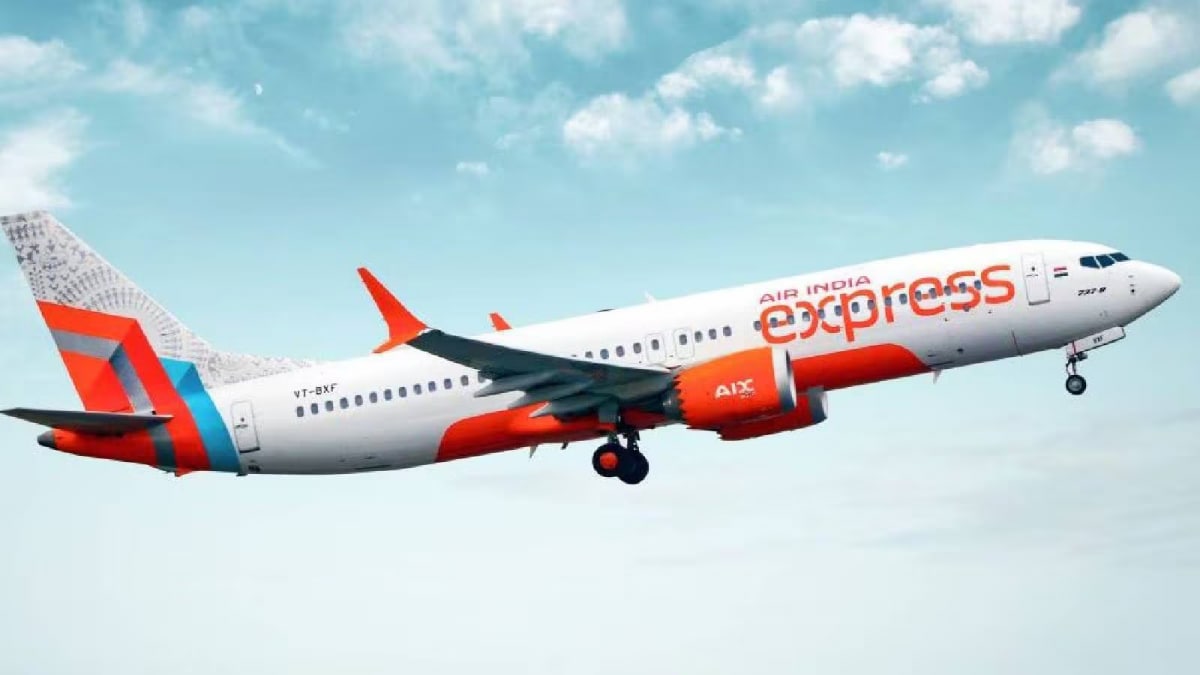 |
|
The escalating trade tensions between the United States and China are creating unexpected ripples across the global aviation industry, potentially benefiting Indian carriers like Air India Express and Akasa Air. China's decision to halt Boeing aircraft acquisitions in response to US President Donald Trump’s imposing a steep 145 percent tariff has opened a window of opportunity for these Indian airlines to bolster their fleets. This strategic shift arises from the existing challenges in aircraft acquisition due to global supply chain constraints, a predicament that has been further exacerbated by the trade dispute. Chinese airlines are currently awaiting the delivery of a substantial number of Boeing aircraft, including approximately 100 B737 MAXs and 11 B787 Dreamliners, some of which were initially earmarked for Air India’s orderbook. The potential redirection of these aircraft to Indian customers presents a significant advantage for Air India Express and Akasa, allowing them to expand their operations and meet growing demand in the Indian aviation market. This situation mirrors a recent trend where 'white tail' aircraft, manufactured for specific customers but subsequently acquired by others, were allocated to AI Express and Akasa. Air India Express, which previously acquired 25 white tail MAX aircraft, stands to gain even more, potentially securing additional white tails or specially designed planes amidst the ongoing trade battle between the United States and China. The Seattle final assembly line capacity, originally designated for Chinese carriers' MAX production, will now remain unutilized, paving the way for Indian carriers to receive additional aircraft, either specifically manufactured or whitetails. Industry experts suggest that Airbus may also be asked by China to expand the number of planes available for its carriers, further diversifying the options available to Chinese airlines and potentially impacting the global aircraft market. The ripple effects of this trade war are far-reaching, impacting suppliers, airlines, and plane makers alike, as they navigate contracts worth billions of dollars in the face of evolving trade policies. The case of U.S. supplier Howmet Aerospace, which sparked a dispute over who should bear the brunt of the tariffs, underscores the complexities and uncertainties surrounding the global aerospace industry in the midst of the U.S.-led trade war. The financial implications are significant, with suppliers, airlines, and plane manufacturers grappling with the challenge of evaluating contracts and adapting to the changing trade landscape.
However, the situation is not without its challenges. Akasa Air, India's newest airline, is currently grappling with a surplus of pilots due to delayed aircraft deliveries from Boeing. This has led to discontent among idle cockpit personnel, highlighting the operational difficulties that can arise from supply chain disruptions and unforeseen delays. The availability of additional aircraft could alleviate this issue, allowing Akasa to fully utilize its workforce and expand its operations. Both Akasa and Tata Group Air India Express are financially capable of handling these additional aircraft, indicating their readiness to capitalize on the opportunity presented by the Chinese Boeing ban. These low-cost airlines have previously added white tails with multiple rows of 2x2 business seats facing forward, demonstrating their ability to adapt to available aircraft configurations. Boeing, whose MAX production has been significantly impacted by a series of adverse events, has been providing these airlines with available aircraft, highlighting the company's efforts to mitigate the impact of production delays and meet customer demand. The situation underscores the interconnectedness of the global aviation industry, where geopolitical tensions and trade disputes can have significant implications for airlines, manufacturers, and suppliers. The ability of Indian carriers to capitalize on this opportunity will depend on their ability to navigate the complexities of the global aircraft market and secure favorable terms with manufacturers and suppliers. The ongoing trade war between the United States and China is likely to continue to create uncertainty and volatility in the global aviation industry, requiring airlines to remain agile and adaptable in the face of evolving market conditions. The potential benefits for Air India Express and Akasa are contingent upon various factors, including the availability of aircraft, the terms of the acquisition agreements, and the overall health of the Indian aviation market.
The broader implications of this situation extend beyond the immediate beneficiaries. It highlights the vulnerability of global supply chains to geopolitical tensions and the importance of diversification in sourcing and production. Airlines around the world are increasingly recognizing the need to diversify their aircraft fleets and develop contingency plans to mitigate the impact of supply chain disruptions. The Chinese Boeing ban also underscores the strategic importance of the Indian aviation market, which is poised for significant growth in the coming years. The government of India is actively promoting the development of the aviation sector through various initiatives, including the expansion of airport infrastructure and the liberalization of aviation regulations. The increased availability of aircraft could further accelerate the growth of the Indian aviation market, creating new opportunities for airlines, manufacturers, and suppliers. The long-term impact of the trade war on the global aviation industry remains uncertain, but it is clear that it is reshaping the competitive landscape and creating new challenges and opportunities for airlines around the world. Airlines that are able to adapt to these changes and capitalize on emerging opportunities will be best positioned to succeed in the long run. The case of Air India Express and Akasa serves as a compelling example of how geopolitical tensions can create unexpected opportunities for agile and adaptable airlines. As the trade war continues to unfold, it will be interesting to see how the global aviation industry responds and what new opportunities and challenges emerge.
Source: Chinese Ban On Boeing Orders Could Help Indian Carriers Like Air India Express, Akasa
